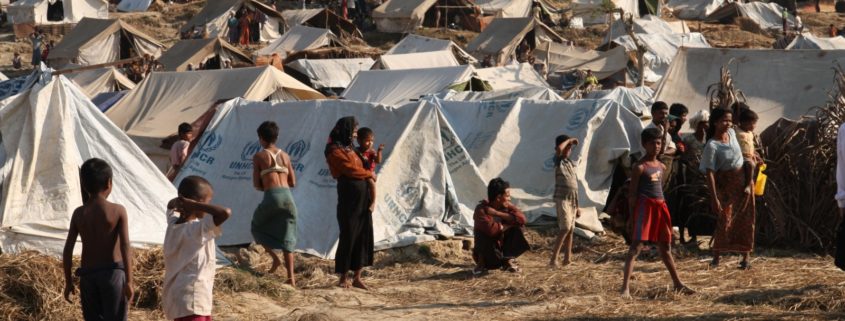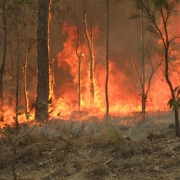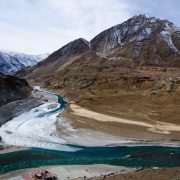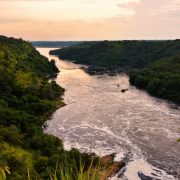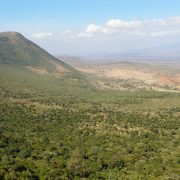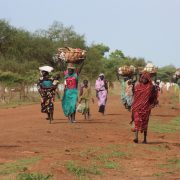The Stream, September 19: Global HotSpots Edition
The Global Rundown
Thousands are without clean water as Myanmar’s “ethnic cleansing” of Rohingya Muslims continues. China sparks tension with India by withholding hydrological data for the Brahmaputra River. India and Pakistan fail to reach a resolution during the latest round of talks on the Indus Waters Treaty. The World Health Organization plans to wage war on cholera as the waterborne disease continues to spread in Yemen. More than a billion people live on land degraded by droughts, flash floods, and other disasters, which the UN warns can lead to conflict over dwindling resources.
“There are acute shortages of everything, most critically shelter, food and clean water.” –Edouard Beigbeder, UNICEF Bangladesh representative, in reference to the mass exodus of Rohingya Muslims fleeing from Myanmar to Bangladesh, which UN Secretary-General Antonio Guterres has declared an ethnic cleansing. Limited access to clean drinking water is one of the greatest challenges facing the 400,000 Rohingya refugees, and poor sanitation is also a growing concern. CBS News
By The Numbers
6 months Length of time each year that China is supposed to share hydrological data for the Brahmaputra River with downstream India. During monsoon season, which spans May to October, the two countries hold a data-sharing agreement, but India claims that they have not received any data so far this year. China attributed the lack of data to technical issues, but tensions between the two nations continue to simmer. BBC
686,783 Total number of suspected cholera cases in Yemen, based on current estimates. Over 2,000 cases have resulted in death. The disease, which is spread largely through contaminated water, is also flaring in Nigeria and other conflict-affected parts of Africa. In response, the WHO is launching a plan to stop cholera transmission by 2030. Reuters
Science, Studies, And Reports
More than 1.3 billion people throughout the world live on degraded agricultural land, according to a report by the United Nations Convention to Combat Desertification (UNCCD). Land degradation is caused by phenomena such as drought, flash floods, deforestation, and overgrazing, and can lead to food and water insecurity. According to the UNCCD, there is a greater likelihood of conflict in these areas due to resource scarcity. Reuters
On The Radar
The latest round of talks between India and Pakistan over the Indus Waters Treaty dispute took place on September 14-15, but no resolution was reached between the two nations. The dispute centers around the construction of two Indian hydroelectric plants. The World Bank, a signatory of the 1960 Indus Waters Treaty, will continue to provide arbitration as India and Pakistan work to settle the dispute. The Economic Times
Kayla Ritter is a recent graduate of Michigan State University, where she studied International Relations and Teaching English to Speakers of Other Languages. She is currently based in Manton, Michigan. Kayla enjoys running, writing, and traveling. Contact Kayla Ritter

